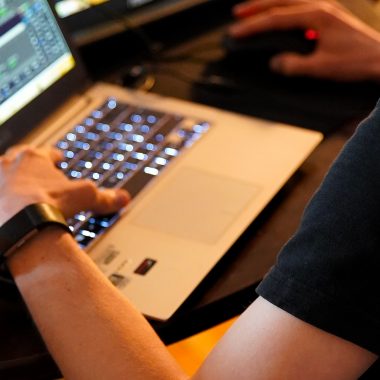The most eagerly awaited fight of the year took place last Saturday in Riyadh, Saudi Arabia. Boxer Tyson Fury (widely regarded as the best active heavyweight given his immaculate record) took on Francis Ngannou, a former UFC heavyweight champion who was trying his hand at English boxing for the 1st time. Given this unique opportunity, the event organisers spared no expense in trying to impress the spectators (26,000) and television viewers (several million). While the Saudi organisation of the fight was in no way called into question by the fighters and their teams, the way the event was received by the public seemed to be out of all proportion to the resources involved. A look at the comments made on social networks reveals a clear polarisation of criticism of the way the event unfolded. The ire of Internet users is directed in particular at the serious delay in the announced schedule and an inappropriate rap concert more than half an hour before the fight. This article will deal exclusively with perceptions of the organisation of the evening, and the purely sporting controversy (the split-decision victory being heavily criticised online) will not be addressed.
For several years now, the Kingdom of Saudi Arabia has been pursuing an all-out strategy of ‘normalisation’, in line with its long-term strategy as announced and detailed in the ‘Vision 2030’ programme. Bolstered by the power of its Public Investment Fund (the 6ᵉ largest sovereign wealth fund in the world), the Kingdom has thus undertaken some very ambitious projects designed as showcases for accelerated modernisation: NEOM, Red Sea Project, Qiddiya, Diriyah…External (and in particular digital) communication appears to be a cornerstone of this strategy with a dual objective: to accelerate the country’s normalisation by promoting the projects and reforms underway, and to enhance its attractiveness by highlighting its potential in terms of tourism and business. Millions of dollars have been sunk into advertising spots on social networks to promote these projects to Western public opinion.
The specificity of the ‘Vision 2030’ programme is the broad spectrum on which it plans to act: in addition to the necessary diversification of the country’s economy and societal reforms, the fields of culture and entertainment are given particular attention. While Lionel Messi has turned down a Pharaonic offer, the Kingdom has recently succeeded in attracting football superstars (Cristiano Ronaldo, Neymar, Karim Benzema) and intends to extend this approach to other disciplines. In addition to F1, Saudi Arabia is also making inroads into the growing world of combat sports, as illustrated by the organisation of the fight between Anthony Joshua and Andy Ruiz in Riyadh in 2019. The press is also speculating about a UFC (Ultimate Fighter Championship, MMA’s most powerful organisation) event in Saudi Arabia next year. In a country where 65% of the population is under 30, expanding entertainment is also a strategy for Mohammed bin Salmane (MBS) to boost his popularity with young people and better align himself with their aspirations.
Raphaël Le Magoariec, a specialist in Saudi soft power, explains that this drive towards sport is a direct result of the wishes of MBS and his entourage, and points out that the country ‘has no private players in sport’. It is against this backdrop of the deployment of soft power on steroids that the Ngannou-Fury battle takes place. With its colossal resources, Saudi Arabia is undeniably effective in pushing forward projects and breaking deadlocks. As Cameroonian fighter Françis Ngannou explained, Saudi Arabia’s determination and financial resources made it possible to organise such a fight quickly: ‘That’s also the reason why a lot of big fights don’t happen: you need money’. His British opponent Tyson Fury was equally enthusiastic: ‘I think that in five to ten years’ time, they will be the home of all sports. All the major sporting events will take place there’. Indeed, the Saudis pulled out all the stops for this fight, attracting a vast array of celebrities, including rapper Eminem, to a brand new ‘Kingdom Arena’ with a capacity of over 26,000 spectators. The fight was also part of the Riyadh Season festival, the first edition of which took place in 2019.
Initially announced for 11pm (UTC+1), the fight between the two heavyweights did not start until 0.40am (UTC +1), i.e. 1.40am local time. The wait therefore seemed interminable to many internet users, who massively questioned the relevance of a rap concert lasting almost 40 minutes before the fight. In addition to the much-criticised musical interlude, Internet users also criticised what they saw as the filler in the two hours leading up to the fight, consisting of superficial interviews (because they were quickly strung together) with celebrities and commentators. In total, the pay-per-view lasted 4 hours (including 5 three-round preliminary bouts plus the half-hour Ngannou-Fury fight).
In terms of volume, the majority of tweets about the fight containing the word ‘saudi’ were negative (45%, compared with 8% positive and 47% neutral), as illustrated by this graph showing the ‘sentiment’ of tweets posted over the course of the evening. The most positive tweets enthusiastically mention the presence of numerous celebrities (Kanye West, Eminem, Cristiano Ronaldo).

All of the 30 most engaging tweets (in all languages) mentioned the pre-fight concert in a negative light, stating in essence: ‘we’re here to see boxing, not a concert’. Criticism of the concert was so overwhelming that the Daily Mail and specialist Sport Bible press reported on it.
On voulait juste voir Francis Ngannou et Tyson Fury s’envoyer des parpaings on se retrouve à assister à un concert comme si on était au Superbowl… pic.twitter.com/s97syHwKyu
— T’Sport (@TFoot__) October 28, 2023
This is the problem with boxing. Low level production. PPV started at 11am main event won’t walk till 3pm. Hour of bullshit filler + live music before main event. We don’t need to be sold on the fight we paid $79.99 already. Just. Give. Us. The. Damn. Fight. #furyvsngannou
— Brendan Schaub (@BrendanSchaub) October 28, 2023
Just tuned into the Fury/Ngannou and this concert is like 35 minutes long. What the shit is going on?
— ‘Big Gun’ Brian Petrie (@BrianPetrieMMA) October 28, 2023
Tyson Fury vs Francis Ngannou was a big chance for boxing to gain a lot of new fans. This event has done the total opposite. I’m a huge boxing fan and this would put me off watching another show produced by Saudi Arabia. The ceremony, the waiting, the punditry. All of it terrible
— Jamie (@jamiemckeague) October 28, 2023
The torrent of criticism expressed via social networks about the organisation of the fight is therefore mainly the result of a combination of two factors: the late start of the much-anticipated fight and its musical introduction, which was perceived as interminable and irrelevant. Critical publications were divided between first-degree complaints and acid irony, as illustrated by this tweet from Sean Ross, an influential combat sports commentator (259.9k followers): ‘hope a boxing match breaks out during this talk show’. French media outlet La Sueur, for its part, criticised on X for being ‘over an hour and forty minutes late […] You are in English boxing’, eliciting around twenty comments in response. Insofar as La Sueur specialises in MMA, this latest tweet also consolidates a rekindled rivalry between the two sports, an angle of attack that is superimposed on the criticisms levelled at the organisation.
Hoping a boxing match breaks out during this talk show
— Sean Ross Sapp of Fightful.com (@SeanRossSapp) October 28, 2023
This a concert or a boxing match. Let’s get to it. #FuryvsNgannou
— Dr. Rajpal Brar, DPT (@3cbPerformance) October 28, 2023
An American professional fighter felt that the organisers were playing for time by artificially filling up the 4-hour pay-per-view (the fight itself only lasted half an hour). There were also around a hundred tweets from Internet users claiming (ironically or not) that they had fallen asleep before the fight started.
I waited that long for the Tyson Fury ring walks to start last night that I fell asleep before the ring walks and missed the whole thing.
— Gareth Liddle (@Garethliddle1) October 29, 2023
This is true. our team was covering Fury vs Ngannou and one teammate fell asleep after the co-main and woke up, and the main event had not started.
Main event was at around 3 AM IST. https://t.co/OUW9QhoZJi
— Saiyed Adeem Karim (@bonbonkayzee) October 29, 2023
Oh my days!!!
How long between the Co-Main Event and the Fury v Ngannou fight?A concert that was complete dog sh!t, then all this build up. I’m almost asleep ffs 😂
— Free Tech (@Free__Tech) October 28, 2023
The organisation of this combat event by Saudi Arabia therefore crystallises the dynamism of Saudi public policy around sport, perceived as an additional lever for modernisation and normalisation with a view to restoring the country’s image abroad. While the desire to offer ambitious Super Bowl-style entertainment is understandable, it seems that the Kingdom has rather misjudged the expectations of most combat sports fans, who are clearly not very receptive to the ‘total show’ dimension. As the road to hell is paved with good intentions, it seems that the public felt that the Saudi organisers had ‘overdone’ a sporting event that would undoubtedly have benefited from being more pared down.









